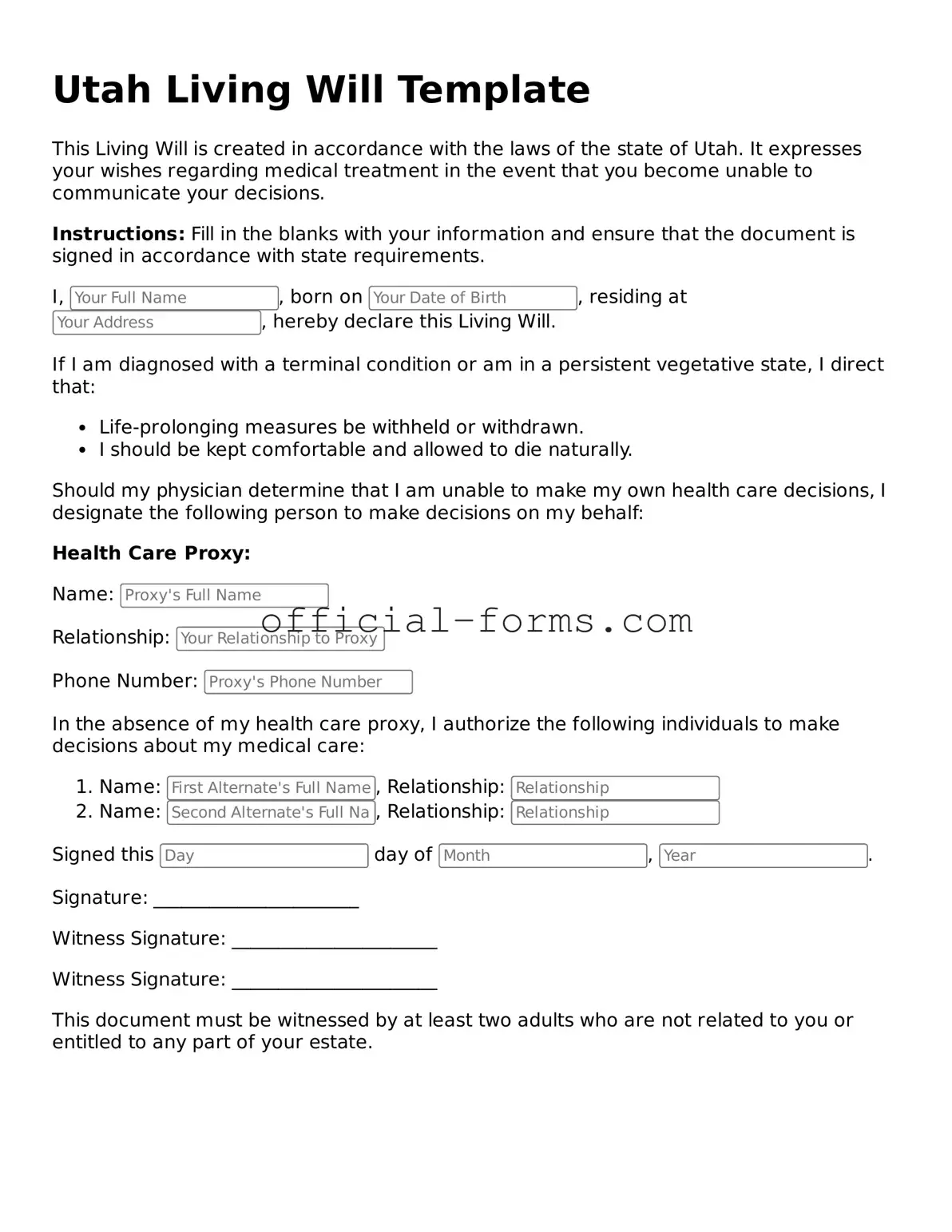Official Utah Living Will Document
A Utah Living Will form is a legal document that allows individuals to outline their preferences regarding medical treatment in the event they become unable to communicate their wishes. This form provides guidance to healthcare providers and family members about the types of medical interventions a person does or does not want. By completing a Living Will, individuals can ensure that their healthcare choices are respected, even if they cannot speak for themselves.
Open My Living Will Now

Official Utah Living Will Document
Open My Living Will Now
Don’t leave your form incomplete
Finish Living Will online quickly from start to download.
Open My Living Will Now
or
➤ PDF
